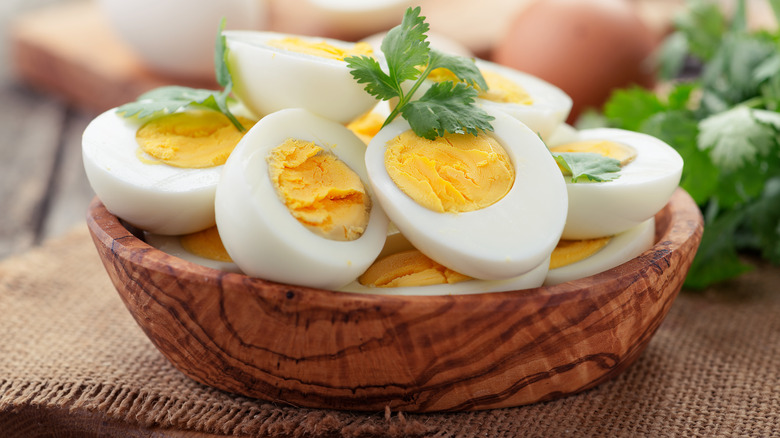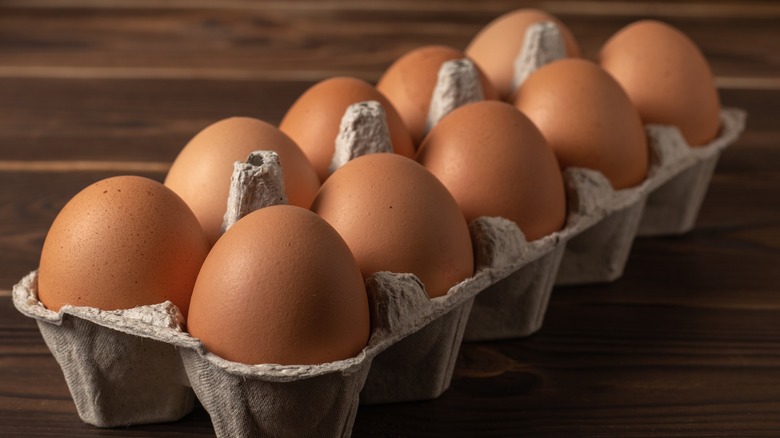The Reason Some Eggs Are Harder To Peel Than Others
Eggs are pretty much the perfect food. BBC Good Food points out that this nutrient-rich breakfast staple is not only a great source of protein but also has two tough-to-get-from-food vitamins, D and B12, plus choline (needed for brain function) wrapped in its delicate shell. While in the past, eggs have gotten a bad rap for high cholesterol levels, they can actually be part of a heart-healthy diet.
While raw eggs may be the breakfast of bodybuilders, you are better off eating them cooked. Not only are raw eggs a salmonella risk, but according to Fit&Well, protein in cooked eggs is more digestible. Since cooking causes the cholesterol in the egg to oxidize, which is linked to heart disease, it's healthiest to cook them low-and-slow, and without added fats from things like butter and oil. Given this, poached or hard-boiled is the way to go.
While it's much easier to hard-boil an egg than to poach one, getting the shell off is often the tricky part. Frustratingly, cooked egg whites often adhere to the shell, leaving the peeled egg a torn and pitted mess. This is because heating the egg causes the proteins to form strong bonds. While this is what makes them edible (unless you are the aforementioned bodybuilder), the proteins also bond with the membrane around the shell during this process, as HowStuffWorks explains, making them hard to peel.
Ways to peel hard-boiled eggs more easily
To make quick — and clean — work of shelling, you need to break the bond between the membrane and the egg.
Organic egg distributor Pete and Gerry's admits the fresher the eggs, the harder they are to peel. The egg whites from fresh eggs have a lower pH, and this creates a stronger bond between the albumen (or egg white) and the shell. As eggs age, the pH level rises, which means those bonds aren't as strong so they separate easier. Pete & Gerry's recommends waiting a week after purchasing eggs before boiling.
But if you can't wait for your eggs to age, adding something alkaline to the water, like baking soda, can help ease apart the links between the proteins. Note, however, this method may not always make a difference and it also might not be the most appetizing since the baking soda enhances the sulfur smell (and flavor) in eggs, per The Los Angeles Times.
Alternatively, you can hard-cook the eggs by steaming instead of boiling. According to Leite's Culinaria, the steam loosens the bonds between the whites and the membranes, which keeps them from sticking together.
You could also try giving hard-boiled eggs a post-cook ice bath. This will not only stop the eggs from cooking — overcooking can lead to a rubbery egg, says HowStuffWorks — but it causes the membrane around the egg to shrink and separate from the shell. Similarly, by running the egg under cold water while peeling, the water will help pry the two apart.

